Charles E W Bean, Diaries, AWM38 3DRL 606/1/1 - October - December 1914 - Part 5
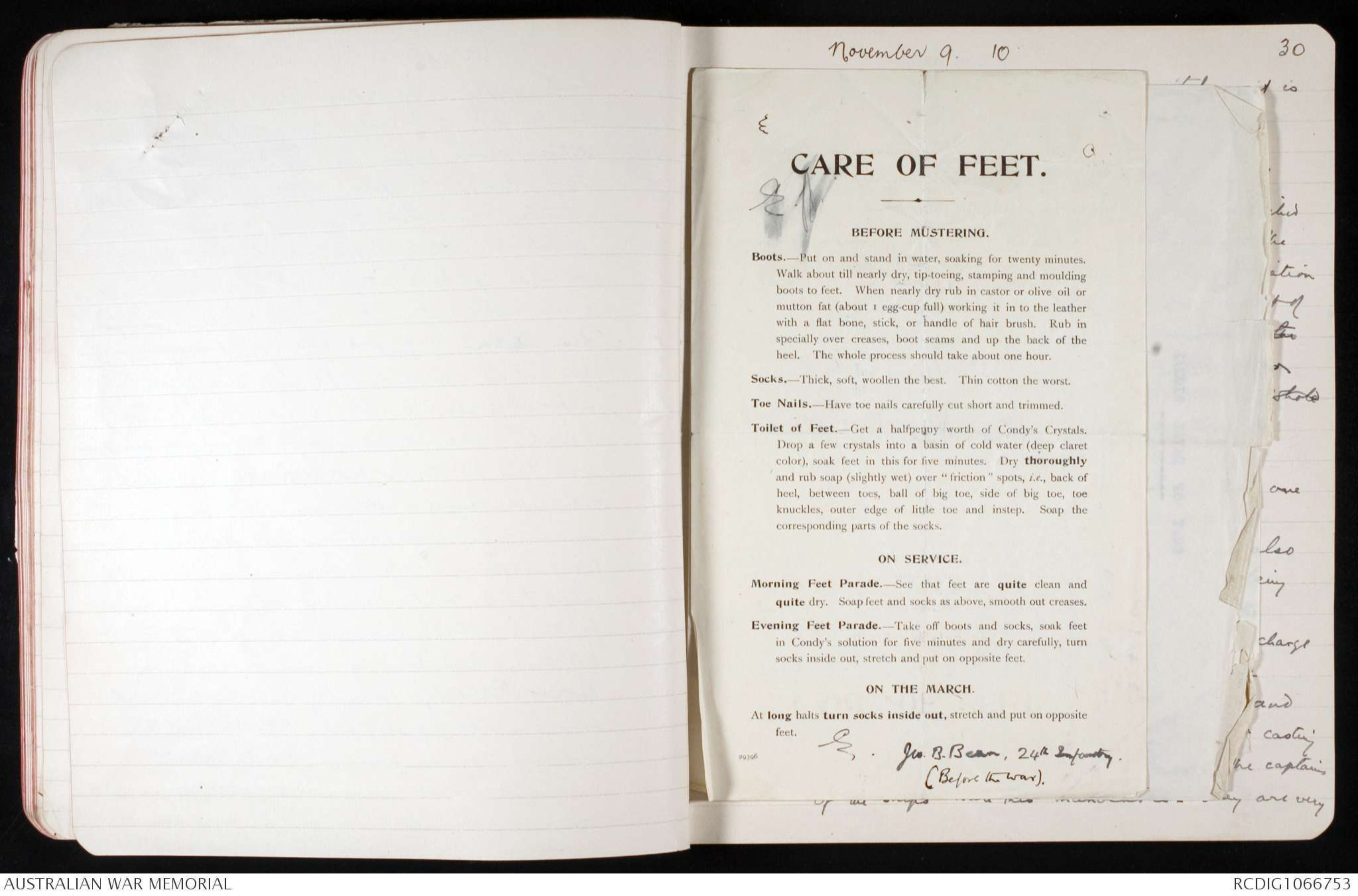
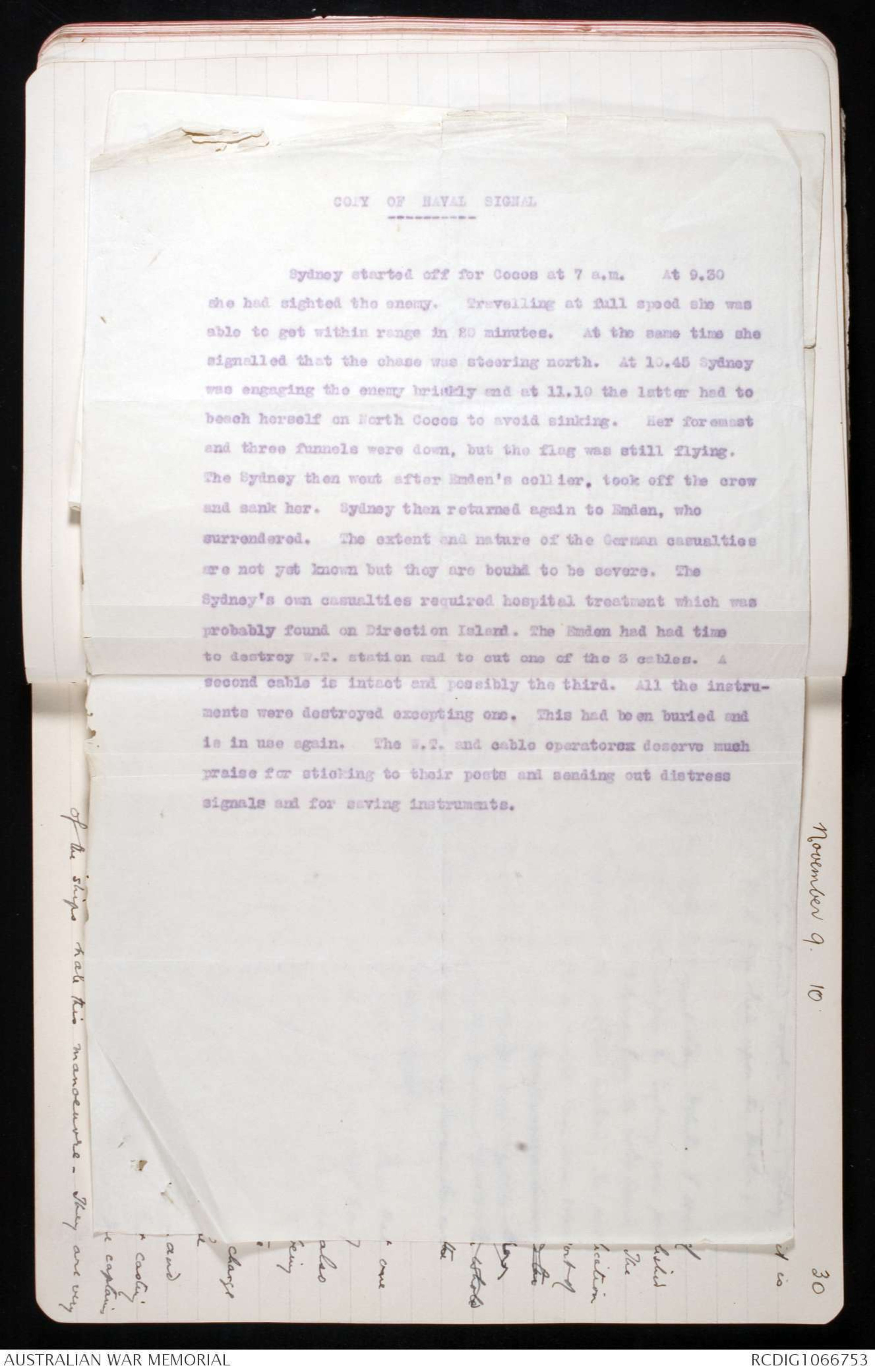
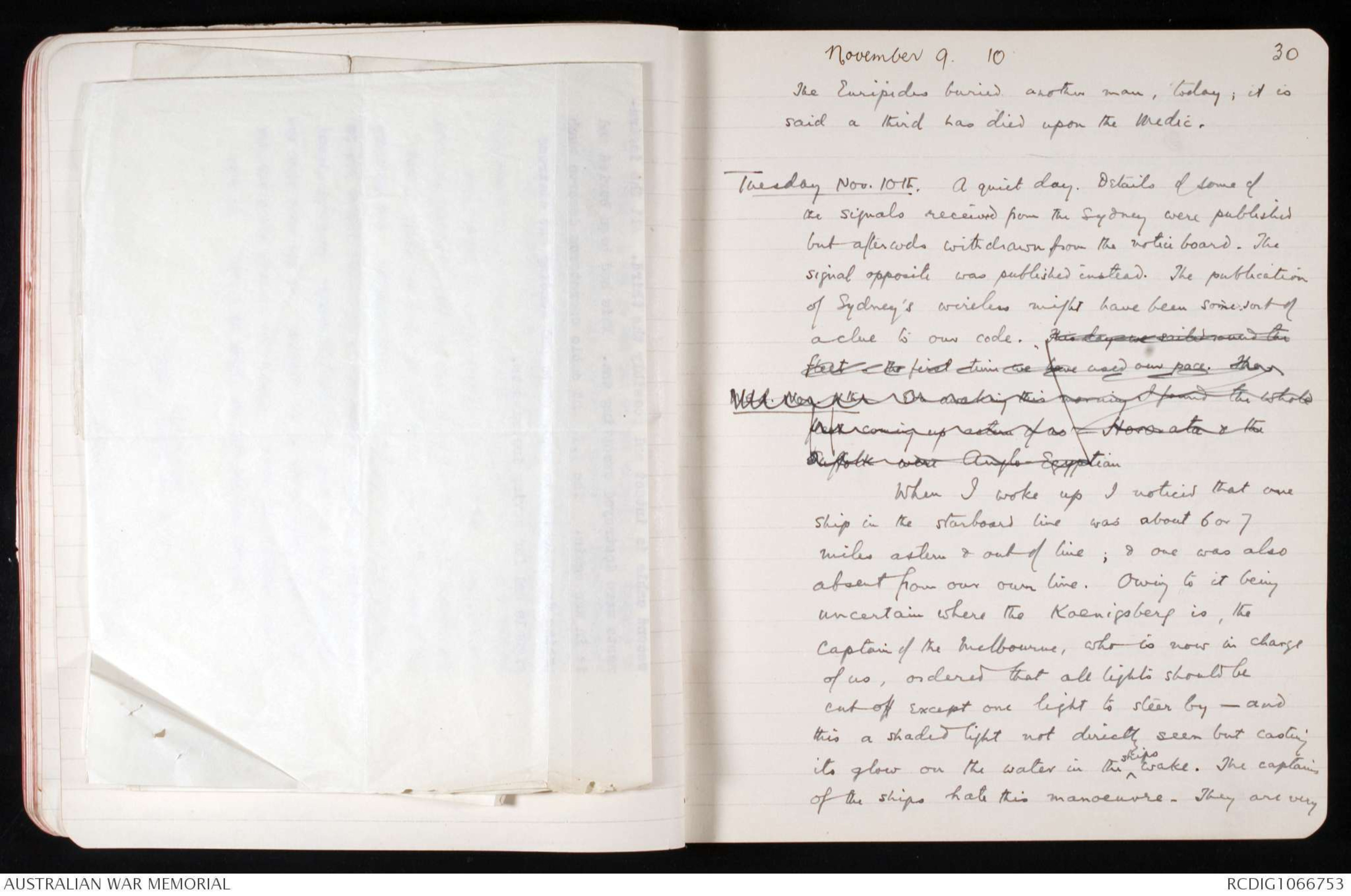
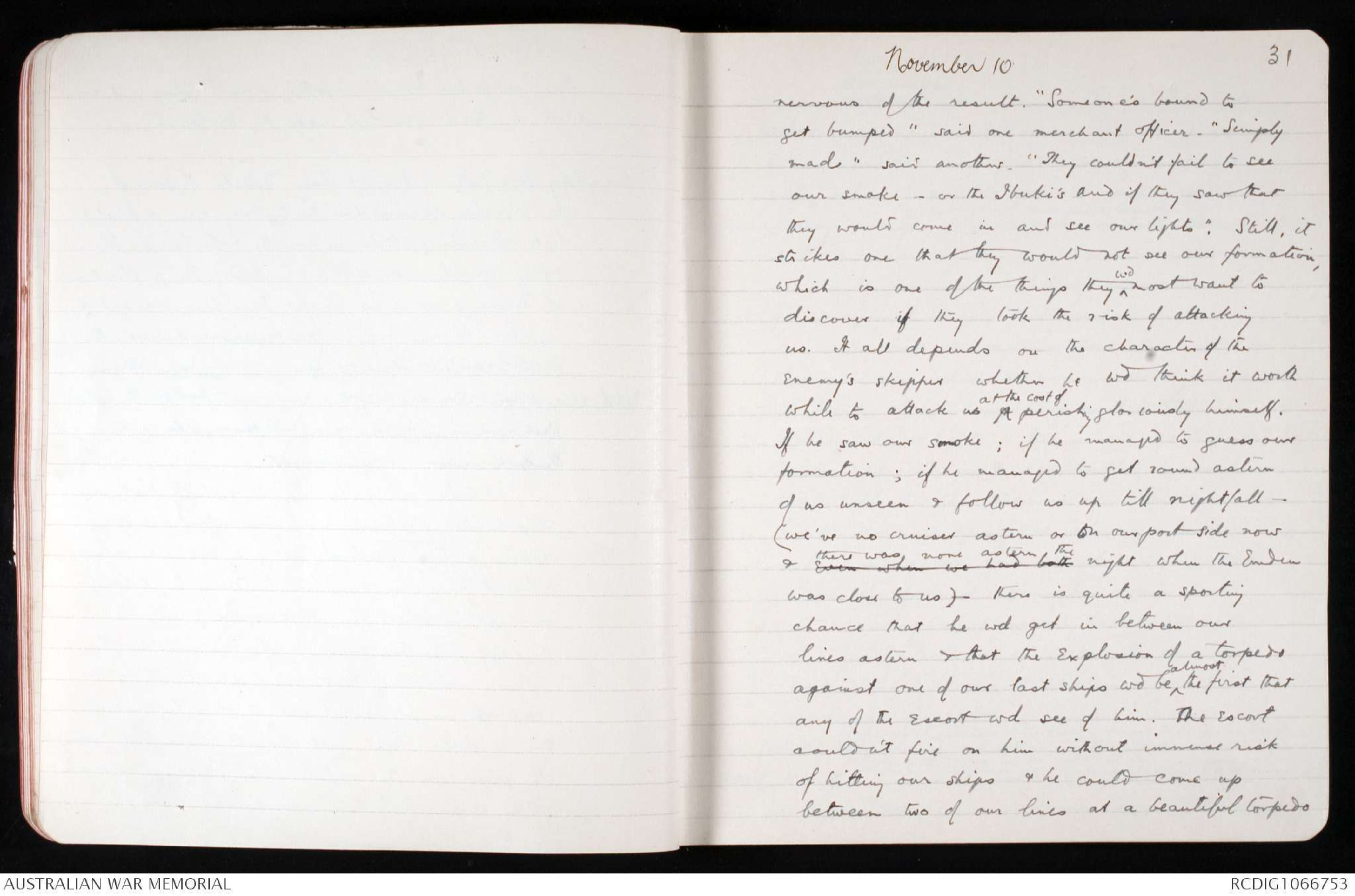
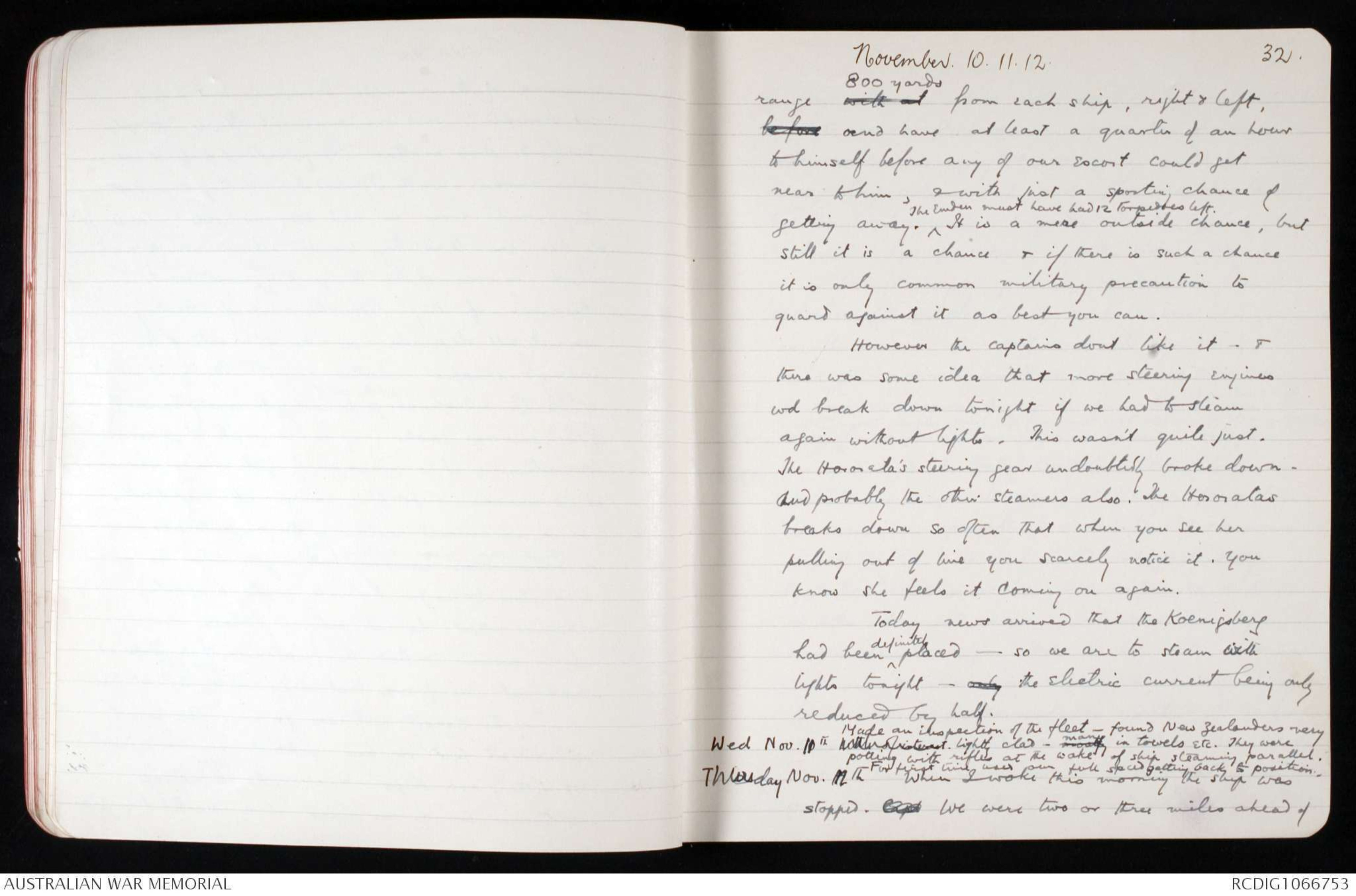
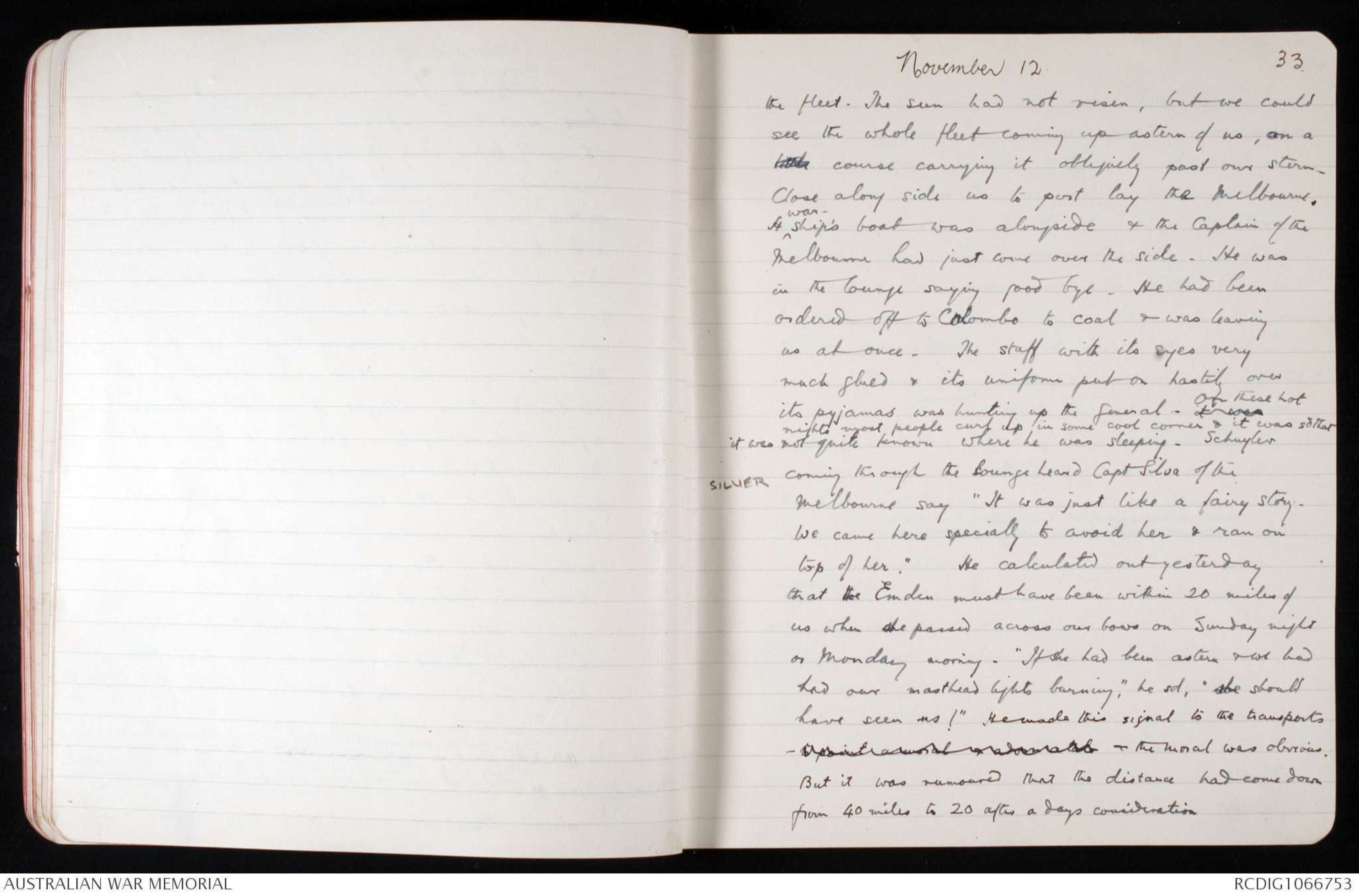
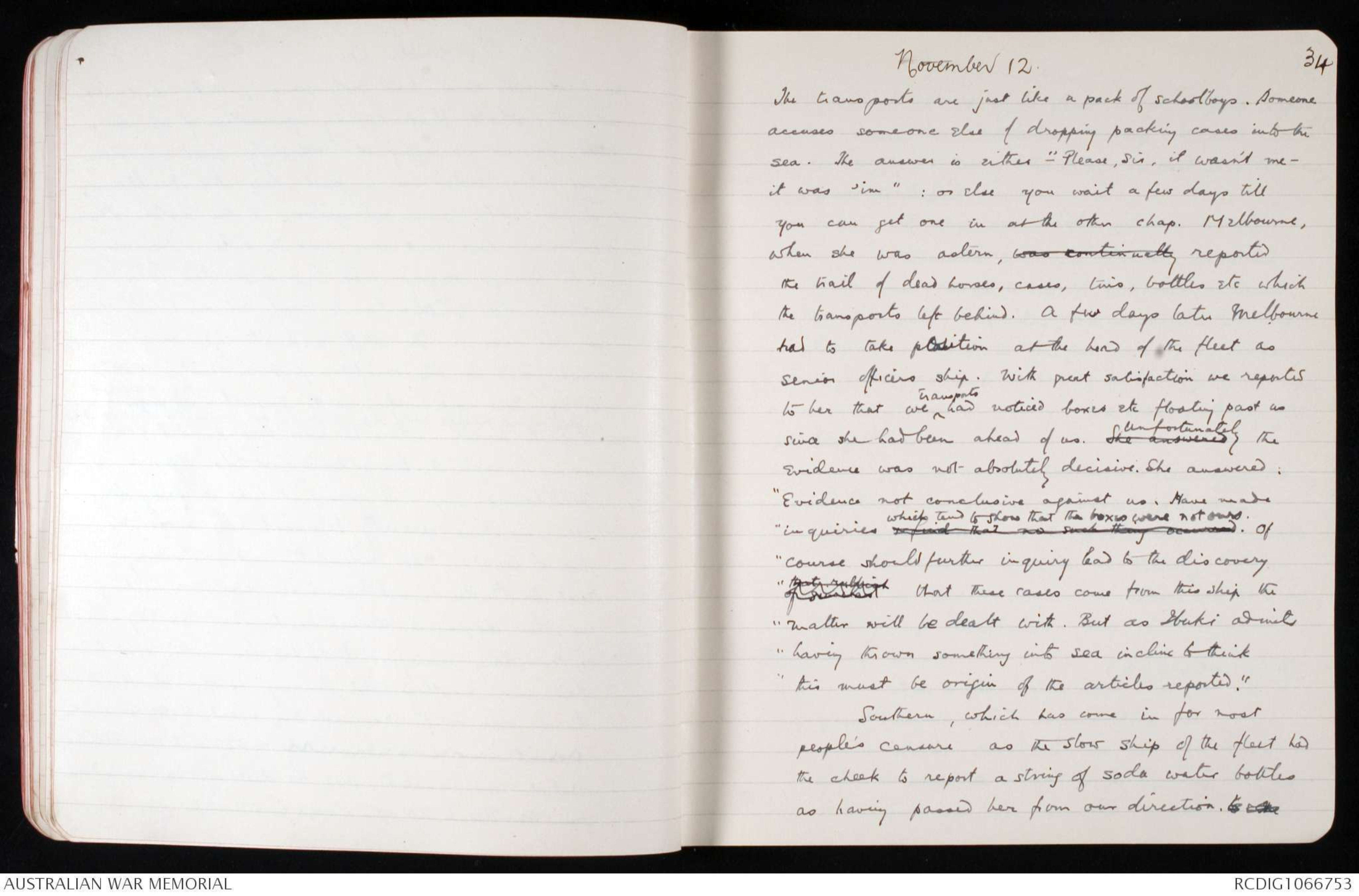
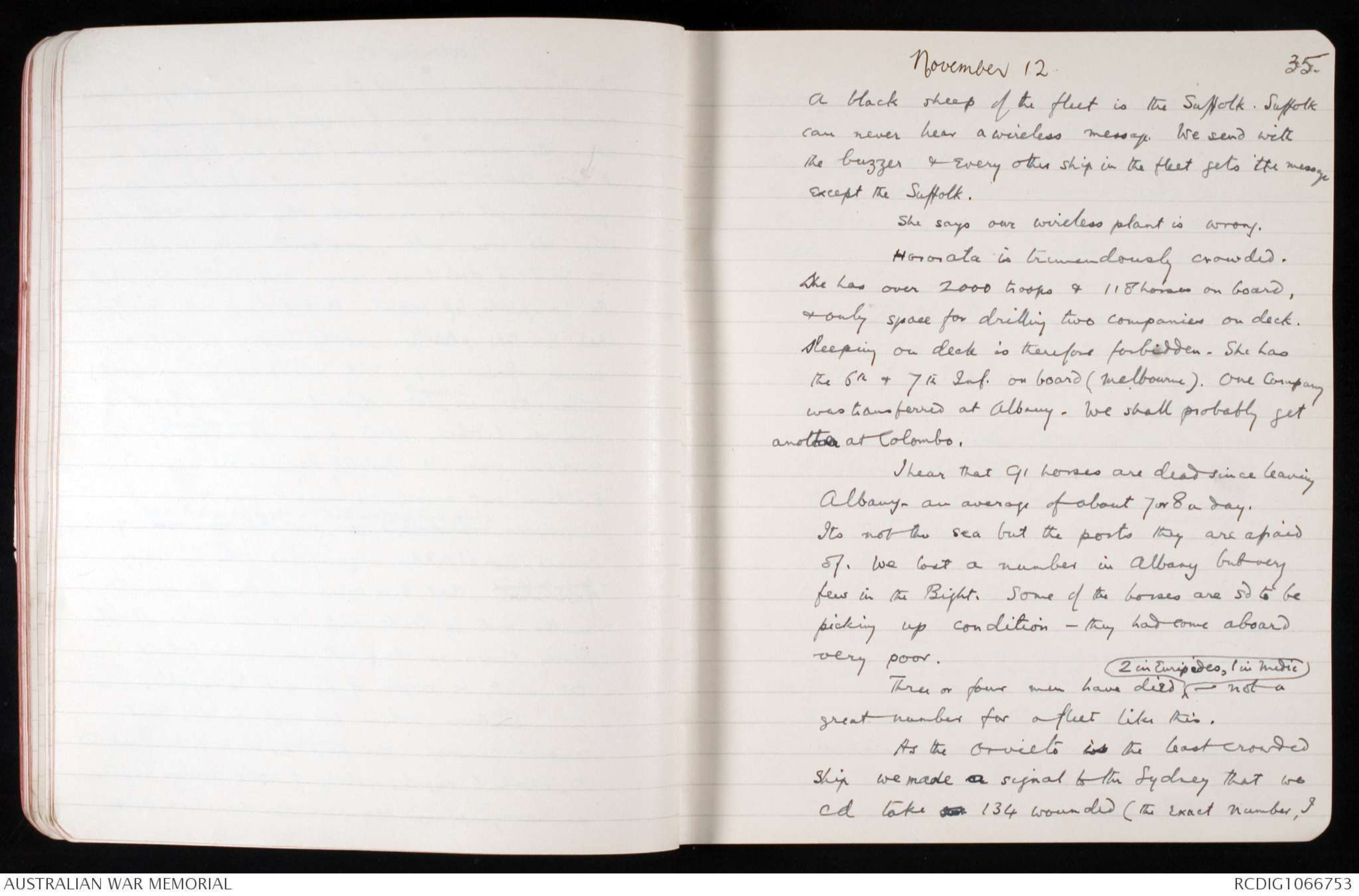
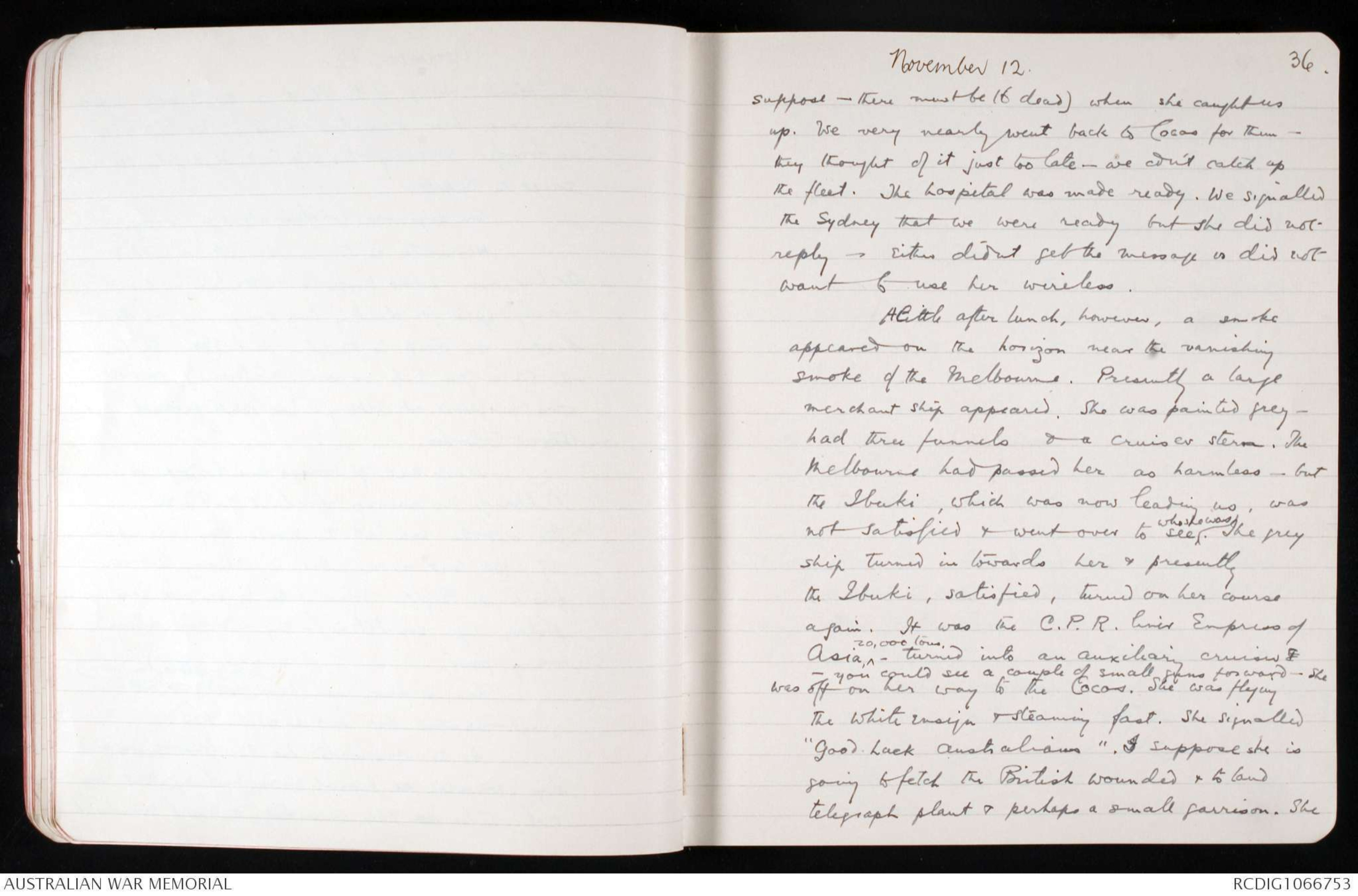
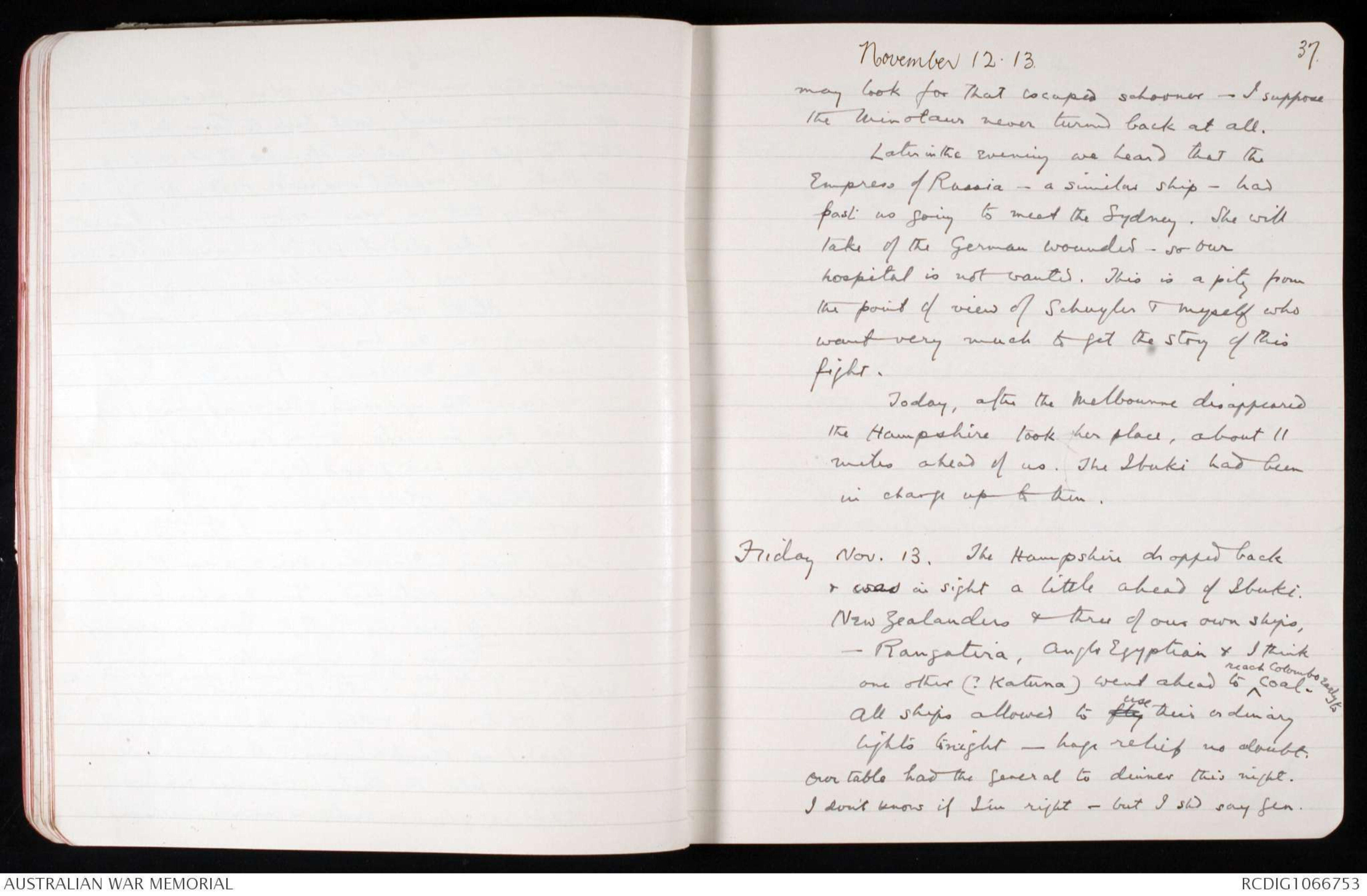
November 9. 10 30
CARE OF FEET.
BEFORE MUSTERING.
Boots.—Put on and stand in water, soaking for twenty minutes.
Walk about till nearly dry, tip-toeing, stamping and moulding
boots to feet. When nearly dry rub in castor or olive oil or
mutton fat (about 1 egg-cup full) working it in to the leather
with a flat bone, stick, or handle of hair brush. Rub in
specially over creases, boot seams and up the back of the
heel. The whole process should take about one hour.
Socks.—Thick, soft, woollen the best. Thin cotton the worst.
Toe Nails.—Have toe nails carefully cut short and trimmed.
Toilet of Feet.—Get a halfpenny worth of Condy's Crystals.
Drop a few crystals into a basin of cold water (deep claret
color), soak feet in this for five minutes. Dry thoroughly
and rub soap (slightly wet) over "friction" spots, i.e., back of
heel, between toes, ball of big toe, side of big toe, toe
knuckles, outer edge of little toe and instep. Soap the
corresponding parts of the socks.
ON SERVICE.
Morning Feet Parade.—See that feet are quite clean and
quite dry. Soap feet and socks as above, smooth out creases.
Evening Feet Parade.—Take off boots and socks, soak feet
in Condy's solution for five minutes and dry carefully, turn
socks inside out, stretch and put on opposite feet.
ON THE MARCH.
At long halts turn socks inside out, stretch and put on opposite
feet.
[[shorthand]]. B. Bean, 24th Infantry.
(Before the war).
29396
COPY OF NAVAL SIGNAL
Sydney started off for Cocos at 7 a.m. At 9.30
she had sighted the enemy. TraveIling at full speed she was
able to get within range in 20 minutes. At the same time she
signalled that the chase was steering north. At 10.45 Sydney
was engaging the enemy briskly and at 11.10 the latter had to
beach herself on North Cocos to avoid sinking. Her foremast
and three funnels were down, but the flag was still flying.
The Sydney then went after Emden's collier, took off the crew
and sank her. Sydney then returned again to Emden, who
surrendered. The extent and nature of the German casualties
are not yet known but they are bound to be severe. The
Sydney's own casualties required hospital treatment which was
probably found on Direction Island. The Emden had had time
to destroy W.T. station and to cut one of the S cables. A
second cable is intact and possibly the third. All the instruments
were destroyed excepting one. This had been buried and
is in use again. The W.T. and cable operators deserve much
praise for sticking to their posts and sending out distress
signals and for saving instruments.
30
November 9. 10
The Euripides buried another man, today, it is
said a third has died upon the Medic.
Tuesday Nov. 10th. A quiet day. Details of some of
the signals received from the Sydney were published
but afterwds withdrawn from the notice board. The
signal opposite was published instead. The publication
of Sydney's wireless might have been some sort of
a clue to our code. This day we sailed round thefleet - the first time we have used our pace. ThenWed. Nov. 11th On awaking this morning I found the wholefleet coming up astern of us -- Hororata & theSuffolk were Anglo-Egyptian
When I woke up I noticed that one
ship in the starboard line was about 6 or 7
miles astern & out of line; & one was also
absent from our own line. Owing to it being
uncertain where the Koenigsberg is, the
Captain of the Melbourne, who is now in charge
of us, ordered that all lights should be
cut off of except one light to steer by – and
this a shaded light not directly seen but casting
its glow on the water in the ^ships wake. The captains
of the ships hate this manoeuvre. They are very
31
November 10
nervous of the result. "Someone's bound to
get bumped" said one merchant officer. "Simply
mad" said another. "They couldn't fail to see
our smoke - or the Ibuki's and if they saw that
they would come in and see our lights". Still, it
strikes one that they would not see our formation,
which is one of the things they ^wd most want to
discover if they took the risk of attacking
us. It all depends on the character of the
enemy's skipper whether he wd think it worth
while to attack us ^at the cost of perishing gloriously himself.
If he saw our smoke; if he managed to guess our
formation; if he managed to get round astern
of us unseen & follow us up till nightfall -
(we've no cruiser astern or on our port side now
& even when we had both there was none astern the night when the Emden
was close to us) - there is quite a sporting
chance that he wd get in between our
lines astern & that the explosion of a torpedo
against one of our last ships wd be ^almost the first that
any of the escort wd see of him. The escort
couldn't fire on him without immense risk
of hitting our ships & he could come up
between two of our lines at a beautiful torpedo
32.
November. 10.11.12.
range with out 800 yards from each ship, right & left,before and have at least a quarter of an hour
to himself before any of our escort could get
near to him, & with just a sporting chance of
getting away. ^The Emden must have had 12 torpedoes left. It is a mere outside chance, but
still it is a chance & if there is such a chance
it is only common military precaution to
guard against it as best you can.
However the captains dont like it - &
there was some idea that more steering engines
wd break down tonight if we had to steam
again without lights. This wasn't quite just.
The Hororata's steering gear undoubtedly broke down -
and probably the other steamers also. The Hororatas
breaks down so often that when you see her
pulling out of line you scarcely notice it. You
know she feels it coming on again.
Today news arrived that the Koenigsberg
had been ^definitely placed - so we are to steam with
lights tonight – only the electric current being only
reduced by half.
Wed Nov 11th Made an inspection of the fleet - found New Zealanders verynothg of interest. lightly clad - mostly many in towels etc. They were
potting with rifles at the wake of ship steaming parallel.
For first time used our full speed getting back to position.
Thursday Nov. 12th When I woke this morning the ship was
stopped. Capt We were two or three miles ahead of
33
November 12.
the fleet. The sun had not risen, but we could
see the whole fleet coming up astern of us, on alittle course carrying it obliquely past our stern.
Close along side us to port lay the Melbourne.
A ^war-ship's boat was alongside & the Captain of the
Melbourne had just come over the side. He was
in the lounge saying good bye. He had been
ordered off to Colombo to coal & was leaving
us at once. The staff with its eyes very
much glued & its uniform put on hastily over
its pyjamas was hunting up the General - it was on these hot
nights most people curl up in some cool corner & it was so that
it was not quire known where he was sleeping. Schuyler
SILVER coming through the lounge heard Capt Silva of the
Melbourne say "It was just like a fairy story.
We came here specially to avoid her & ran on
top of her." He calculated out yesterday
that the Emden must have been within 20 miles of
us when she passed across our bows on Sunday night
or Monday morning. "If she had been astern & we had
had our masthead lights burning," he sad, "she should
have seen us!" He made this signal to the transports
- a point a word & adornated - the moral was obvious.
But it was rumoured that the distance had come down
from 40 miles to 20 after a days consideration
34
November 12.
The transports are just like a pack of schoolboys. Someone
accuses someone else of dropping packing cases into the
sea. The answer is either - "Please, Sir, it wasn't me-
it was 'im" : or else you wait a few days till
you can get one in at the other chap. Melbourne,
when she was astern, was continually reported
the trail of dead horses, cases, tins, bottles etc which
the transports left behind. A few days later Melbourne
had to take position at the head of the fleet as
senior officers ship. With great satisfaction we reported
to her that we ^transports had noticed boxes etc floating past us
since she had been ahead of us. She answered Unfortunately the
evidence was not absolutely decisive. She answered:
"Evidence not conclusive against us. Have made
"inquiries to find that no such thing occurred which tend to show that the boxes were not ours. Of
"course should further inquiry lead to the discovery
"that rubbish of signal fleet that these cases came from this ship the
"matter will be dealt with. But as Ibuki admits
"having thrown something into sea incline to think
"this must be origin of the articles reported."
Southern, which has come in for most
people's censure as the slow ship of the fleet had
the cheek to report a string of soda water bottles
as having passed her from our direction. to either
November 12.
35.
A black sheep of the fleet is the Suffolk. Suffolk
can never hear a wireless message. We send with
the buzzer & every other ship in the fleet gets the message
except the Suffolk.
She says our wireless plant is wrong.
Hororata is tremendously crowded.
She has over 2000 troops & 118 horses on board,
& only space for drilling two companies on deck.
Sleeping on deck is therefore forbidden. She has
the 6th & 7th Inf. on board (Melbourne). One company
was transferred at Albany. We shall probably get
another at Colombo.
I hear that 91 horses are dead since leaving
Albany- an average of about 7 or 8 a day.
Its not the sea but the ports they are afraid
of. We lost a number in Albany but very
few in the Bight. Some of the horses are sd to be
picking up condition – they had come aboard
very poor.
Three or four men have died ^2 in Euripides, 1 in Medic - not a
great number for a fleet like this.
As the Orvieto is the least crowded
ship we made a signal to the Sydney that we
cd take on 134 wounded (the exact number, I
36.
November 12.
suppose - there must be 16 dead) when she caught us
up. We very nearly went back to Cocos for them -
they thought of it just too late - we cdn't catch up
the fleet. The hospital was made ready. We signalled
the Sydney that we were ready but she did not
reply - either didn't get the message or did not
want to use her wireless.
A little after lunch, however, a smoke
appeared on the horizon near the vanishing
smoke of the Melbourne. Presently a large
merchant ship appeared. She was painted grey -
had three funnels & a cruiser stern. The
Melbourne had passed her as harmless - but
the Ibuki, which was now leading us, was
not satisfied & went over to see ^who she was. The grey
ship turned in towards her & presently
the Ibuki, satisfied, turned on her course
again. It was the C.P.R. liner Empress of
Asia, ^20,000 tons, - turned into an auxiliary cruiser &
- you could see a couple of small guns forward - She
was off on her way to the Cocos. She was flying
the white ensign & steaming fast. She signalled
"Good Luck Australians", I suppose she is
going to fetch the British wounded & to land
telegraph plant & perhaps a small garrison. She
37.
November 12.13.
may look for that escaped schooner - I suppose
the Minotaur never turned back at all.
Later in the evening we heard that the
Empress of Russia - a similar ship - had
past us going to meet the Sydney. She will
take of the German wounded - so our
hospital is not wanted. This is a pity from
the point of view of Schuyler & myself who
want very much to get the story of this
fight.
Today, after the Melbourne disappeared
the Hampshire took her place, about 11
miles ahead of us. The Ibuki had been
in charge up to then.
Friday Nov. 13. The Hampshire dropped back
& was in sight a little ahead of Ibuki.
New Zealanders & three of our own ships,
- Rangatira, Anglo Egyptian & I think
one other (? Katuna) went ahead to ^reach Colombo early to coal.
All ships allowed to fly use their ordinary
lights tonight - huge relief no doubt.
Our table had the General to dinner this night.
I don't know if I'm right - but I shd say Gen.
 Diane Ware
Diane WareThis transcription item is now locked to you for editing. To release the lock either Save your changes or Cancel.
This lock will be automatically released after 60 minutes of inactivity.